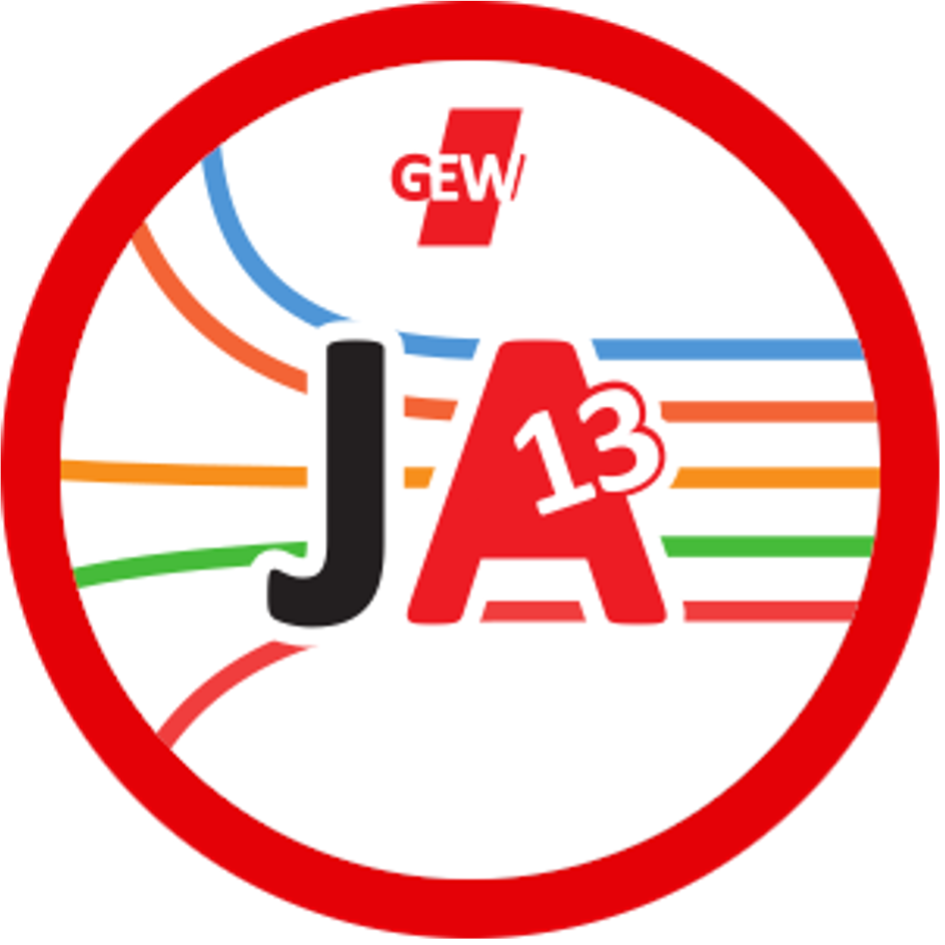“YES 13 - because primary school teachers earn it!”
Internal practice
Duration
Ongoing since 2016.
Reason it was developed
A 13 is the pay grade in which primary school teachers should be placed, currently most of them are still in the lower pay grade A 12. Primary school teachers in all German states are paid less than teachers at other types of schools. This constitutes a form of indirect discrimination based on gender, because about 90% of primary school teachers are women. According to the constitutions and school laws of the German federal states, the pedagogical work of teachers at primary schools is just as important as the transfer of knowledge in secondary schools.
Activities
The YES 13 campaign is coordinated by the Board's Women's Policy Department. It is the umbrella for the political work of the 16 GEW structures at the federal state level (‘regional structures’). They are the ones who put pressure on the state governments through their lobbying and political actions. The core of the campaign is that there is a nationwide action period in November. The period was chosen because from mid-November primary school teachers work “for free” as compared to their colleagues in secondary schools, because of their lower salary. The core of the activities are the actions in the GEW regional structures. These aim to achieve broad public support for the demand to pay primary school teachers better in order to put pressure on the federal state governments. Under the umbrella of the JA 13 Campaign, among other things, an occupational science study and a legal opinion on indirect discrimination were obtained, further training for the planning of actions is offered annually, a nationwide homepage is maintained, studies on the topic are published.
Results
The YES 13 campaign was able to refute an old prejudice that elementary school teachers could not be mobilized for their interests through trade unions. The campaign has succeeded in raising the profile of primary school teachers as women and making it clear that they are highly professional. The public, especially the parents, but also many members of the federal state parliaments support the goal of achieving better pay for primary school teachers. The GEW was successful in half of Germany's 16 federal states: in six states, changes were made in the laws governing salaries, resulting in a higher grading of primary school teachers (Berlin, Brandenburg, Bremen, Mecklenburg-Western Pomerania, Saxony, Schleswig-Holstein); in one state, the legislative process is underway (Hamburg); and in one state, there are salary bonuses (Lower Saxony). The successes are only partly due to the fact that state governments wanted to end indirect gender discrimination with regard to teachers' salaries. It can be assumed that their main concern was to be competitive in the teacher labour market in view of the current teacher shortage.
Funding
Nationwide GEW-Initiative "Education. Think Further" and GEW regional structures.